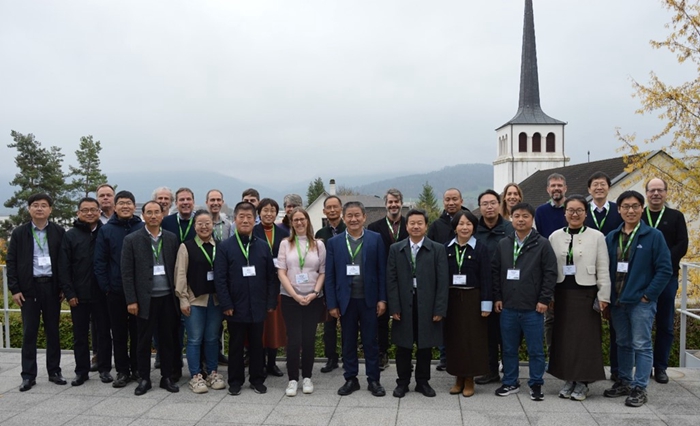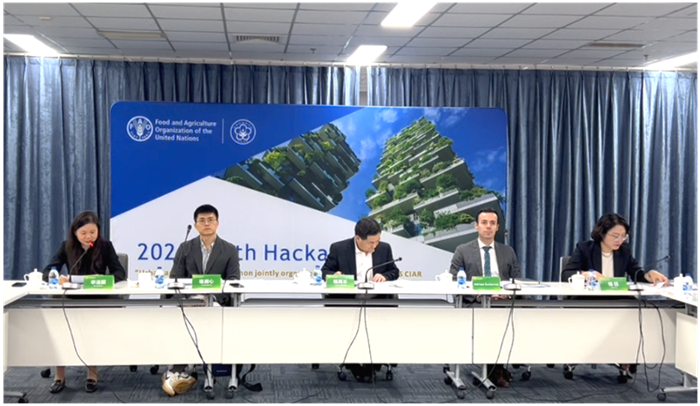[China Daily] Chinese scientists' major discovery innovating pesticide industry
Chinese scientists have made a significant breakthrough in pest control, identifying a key protein that insects use to transport lipids and detoxify pesticides. The findings, published Wednesday in the journal Cell, pave the way for developing safer and more effective pesticides.
Led by Professor Yang Qing at the Agricultural Genomics Institute at Shenzhen, Chinese Academy of Agricultural Sciences, the study focused on ABCH transporters, a family of proteins found in insects but absent in humans and plants. These transporters play a crucial role in transporting lipids and expelling pesticides from insect cells.
The researchers discovered that ABCH transporters function like "squeeze pumps," ejecting these substances from cells. They also identified a small-molecule inhibitor that can block these transporters, potentially preventing insects from detoxifying pesticides and increasing their effectiveness.
Pests pose severe threats to global food security, trade and livelihoods. According to the Food and Agriculture Organization of the United Nations, crop pests and diseases cause annual yield losses of up to 40 percent, leading to economic damages exceeding $220 billion.
While pesticides play a crucial role in protecting crops and reducing losses, the development of eco-friendly and low-resistance pesticides has become an industry imperative, Yang said.
The cornerstone of designing targeted pesticides, often referred to as green pesticides for their precision and efficiency in combating pests, lies in identifying molecular targets — specific biological molecules or proteins that pesticides can act on to disrupt pests' life activities.
Renowned Chinese scientists have hailed the study as a milestone in the pesticide industry's pursuit of sustainable solutions.
Qian Xuhong, an academician of the Chinese Academy of Engineering, described the discovery as "a peak" for the plant protection and pesticide industry. "This groundbreaking research will significantly advance the development and application of ABCH transporter-targeted pesticides," he said.
Song Baoan, also an academician of the Chinese Academy of Engineering, emphasized the urgent need for solutions to pesticide resistance. "The increasingly severe resistance of pests to insecticides has become a global agricultural challenge, threatening food security worldwide. This research provides crucial theoretical and practical guidance for tackling resistance," Song said.
Kang Le, an academician of the Chinese Academy of Sciences, highlighted the importance of the study for China's agricultural sustainability. "By identifying small-molecule inhibitors that block ABCH transporters, this research opens new avenues for developing innovative pesticide targets and addressing resistance, benefiting sustainable agricultural development," he said.
Yang noted that the team will explore the potential of the inhibitors to address resistance to other pesticides, enhancing efficiency and promoting green agriculture.
Looking ahead, Yang said that with rapidly evolving artificial intelligence technologies, new pesticide products based on the team's achievements could be developed within the next five to ten years.
-
 Dec 12, 2024Chinese Academy of Agricultural Sciences (CAAS) is launching the NARS Capacity Building through China-Africa Research Partnership Program
Dec 12, 2024Chinese Academy of Agricultural Sciences (CAAS) is launching the NARS Capacity Building through China-Africa Research Partnership Program -
 Dec 05, 2024China-CABI Project Development Workshop Held in Delémont, Switzerland
Dec 05, 2024China-CABI Project Development Workshop Held in Delémont, Switzerland -
 Dec 05, 2024Ministerial Workshop on Digital Agriculture and Rural Revitalization for BRI Partner Countries Held at CAAS
Dec 05, 2024Ministerial Workshop on Digital Agriculture and Rural Revitalization for BRI Partner Countries Held at CAAS -
 Dec 05, 2024CIAR and FGV Deepen Cooperation to Promote the Development of China-Brazil Green Agricultural Products Value Chain
Dec 05, 2024CIAR and FGV Deepen Cooperation to Promote the Development of China-Brazil Green Agricultural Products Value Chain -
 Dec 05, 20242024 Youth Hackathon for Urban Agriculture Finals Successfully Held in Beijing
Dec 05, 20242024 Youth Hackathon for Urban Agriculture Finals Successfully Held in Beijing
